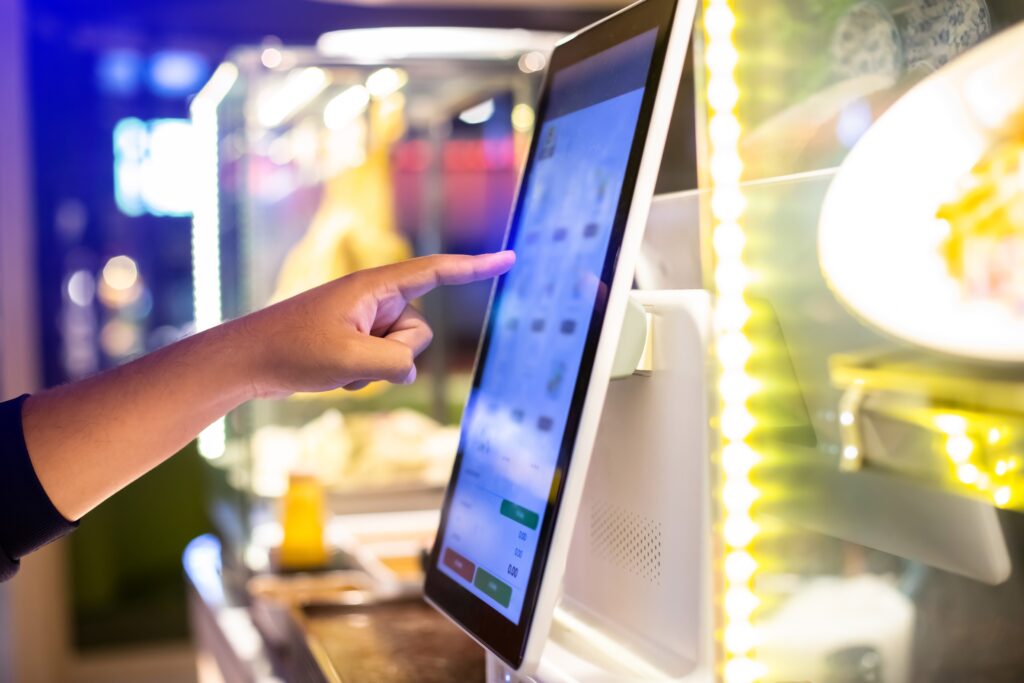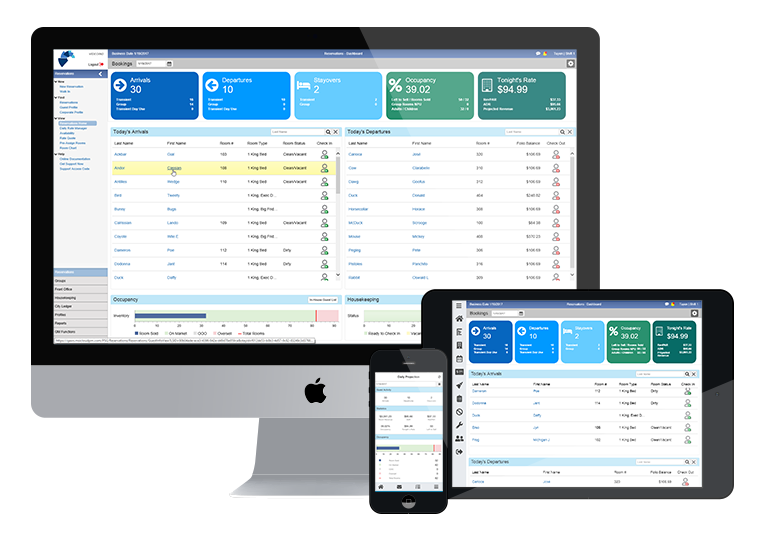Book a Demo
Your hotel’s restaurant and retail outlets need a robust platform that delivers amazing guest experiences and staff efficiency. Seamless operations are essential to turning one-time guests into loyal return guests. In this guide, we will explore critical factors to consider when evaluating a POS for your hotel.
Your POS system should not be an afterthought, it needs to have the same robust functionality as your hotel management software. Here are 10 key considerations to keep in mind when evaluating a POS:
Your hotel POS must seamlessly integrate with your PMS. Your POS is more than just a cash register for your restaurant and retail. It’s a gateway to guest information and accurate billing. A seamless integration allows guests to charge meals directly to their room without hiccups, on the back end or for them.
Dynamic integration makes it easy for staff to pull up an itemized receipt when closing a folio, rather than just seeing the total charge. This type of integration saves time for staff and helps answer any questions about their restaurant bill at check out.
If your hotel has multiple F&B outlets— a breakfast buffet, lounge, poolside services and room service—you need a system that can do it all. A centralized POS system simplifies reporting and streamlines operations. Look for features that can run them all, with centralized data.
The same system should also work in retail operations, to manage a sundry or gift shop. Using the same system across every outlet ensures rolled up reporting across your business.
Numbers matter. A robust reporting system provides insights into peak hours, popular menu items, and staff performance. Armed with this information, you can optimize your offerings and enhance profitability.
A robust integration also makes end-of-day financials across the entire property easy. Send revenue data from your POS to your PMS to stay on top of your overall revenue production for the day.

Give your guests the ability to choose how they want to order and reduce staffing costs with self-service stations. A self-service kiosk is a standalone screen into which guests can tap their food order. The information is then passed along to the kitchen and their meal starts without needing to wait in line or wait for staff availability.
To run your retail or restaurant, your staff needs to keep a close eye on what is in stock. Having inventory management in your restaurant management platform ensures that you reduce waste and stay on top of costs. In a robust POS, inventory can be broken down by dishes and by SKU numbers to account for retail goods. Look for features that work in a way that complements your existing procurement processes.
A robust restaurant system isn’t just for front of house staff: it runs the kitchen as well. With a cloud-based system, items ordered at the table are sent back to the kitchen with a few clicks of a button. They’ll then appear on kitchen-safe hardware that lets your amazing restaurant staff get to work preparing the meal.
If your restaurant gets busy, you’ll need a system that can manage reservations, storing data like party size, name, and contact number. Another key feature is the ability to create a waitlist and send notifications via text to guests when their table is ready. Don’t let your guests get lost in the shuffle!
Once guests arrive, the POS should have a customized, accurate map of your restaurants. Let your host stand easily assign seats and send that information to every server’s tablet.
Protecting guest data is non-negotiable! Your POS system must follow industry standards like PCI DSS. Safeguarding sensitive information must be one of your hotel’s top priorities. Ensure that any data, especially financial and personal information, passed between systems is done so in a safe and reliable manner.
In addition to the ability to simply have and store your menu, your POS should be able to store and display specials based on time of day or days of the week, automatically show sold-out items, and display logos for quick ordering. Menu management in the front-end POS should make it easy for serving staff to answer guest questions and provide a streamlined, memorable meal.

Your POS should be part of a larger technology suite that integrates and manages your entire property. Your restaurant and retail should seamlessly sync with the system that runs your hotel operations, including marketing, revenue, and distribution.
Jonas Chorum’s point of sale system does all of this and so much more. It’s built for multi-outlet, hotel-specific restaurants. Our cloud-based platform makes it easy to run operations from anywhere. Keep guest data synced to create memorable guest experiences with a connected guest journey. Learn more about Chorum POS and get a demo here.